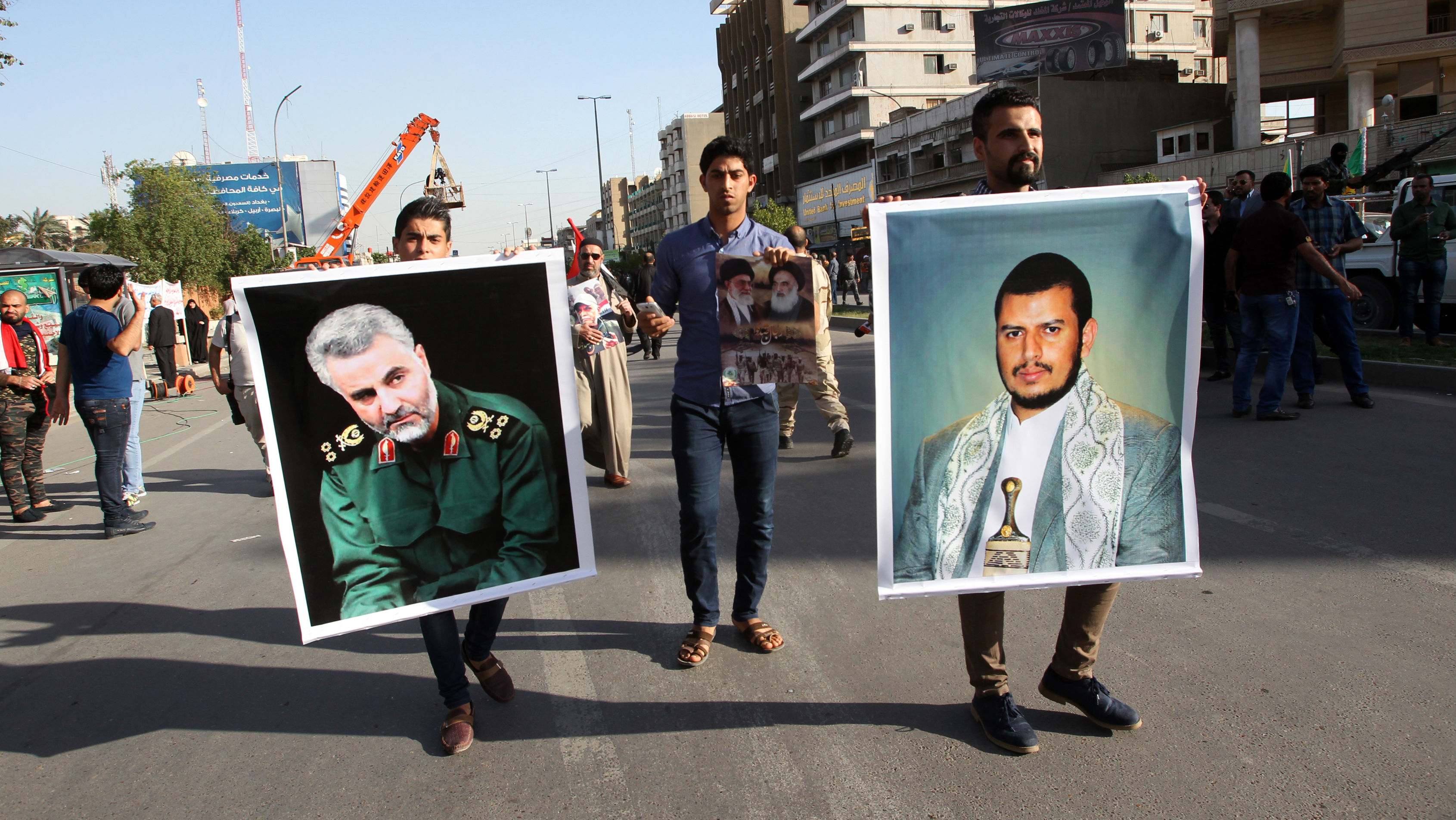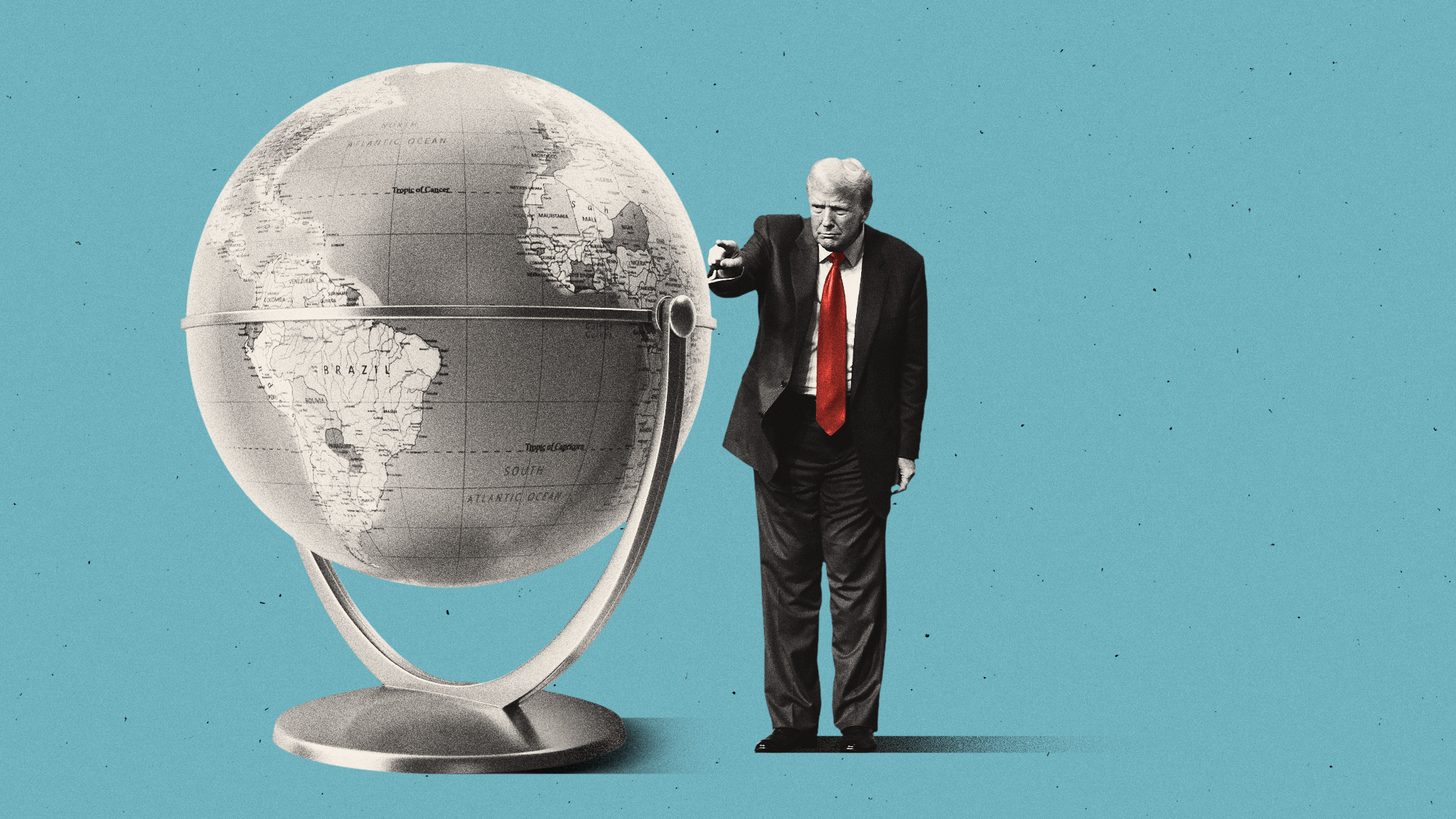‘Eclipses the death of Bin Laden’: reaction to US killing of top Iranian general
Death of Qasem Soleimani ‘one of biggest developments in the Middle East for decades’

A free daily email with the biggest news stories of the day – and the best features from TheWeek.com
You are now subscribed
Your newsletter sign-up was successful
The killing of the head of the Iranian Revolutionary Guards’ elite Quds Force in a US air strike has triggered warnings of a potential all-out conflict between the two nations.
General Qasem Soleimani was targeted by a drone strike at Iraq’s Baghdad International Airport in the early hours of Friday, in what the Pentagon has described as a “decisive defensive action”.
US military officials claim Soleimani approved recent attacks by protestors on the US embassy in Baghdad, and say he was killed “at the direction” of President Donald Trump.
The Week
Escape your echo chamber. Get the facts behind the news, plus analysis from multiple perspectives.

Sign up for The Week's Free Newsletters
From our morning news briefing to a weekly Good News Newsletter, get the best of The Week delivered directly to your inbox.
From our morning news briefing to a weekly Good News Newsletter, get the best of The Week delivered directly to your inbox.
What has the reaction been?
Charles Lister, director of the counterterrorism programme at the Washington D.C.-based Middle East Institute, describes the killing as “one of the biggest developments in the Middle East for decades”.
In an article for The Telegraph, Lister says the death of Soleimani “far eclipses the deaths of [Osama] Bin Laden or [Abu Bakr] Baghdadi in terms of strategic significance and implications”.
“His death is a serious loss for Iran’s regional agenda, but his ‘martyrdom’ will likely fuel a response that will, at least in the medium term, make up for his death,” Lister adds.
A free daily email with the biggest news stories of the day – and the best features from TheWeek.com
The New York Times’ Eric Nagourney says that Soleimani was seen by many as a future leader of Iran.
“The general, a once-shadowy figure who enjoyed celebrity status among the hard-line conservatives in Iran, was a figure of intense interest to people both inside and outside the country,” writes Nagourney.
“It is not just that he was in charge of Iranian intelligence gathering and covert military operations, and regarded as one of its most cunning and autonomous military figures. He was also believed to be very close to the country’s supreme leader, Ayatollah Ali Khamenei.”
Nagourney notes that Soleimani was understood to be the “chief strategist” behind Iran’s military operations in Syria, Iraq and across the Middle East.
That view is echoed by Middle East scholar Andrew Exum, who in an article for The Atlantic writes that “I do not know of a single Iranian who was more indispensable to his government’s ambitions in the Middle East”.
“From a military and diplomatic perspective, Soleimani was Iran’s David Petraeus and Stan McChrystal and Brett McGurk all rolled into one,” says Exum, comparing the Iranian to the former CIA director, US army general and senior diplomat respectively.
“This doesn’t mean war, it will not lead to war, and it doesn’t risk war. None of that. It is war,” Exum concludes.
The Guardian’s Juilan Borger agrees, writing that the killing “has closed one gruesome chapter in the region’s endless conflicts, only to open another, which could well prove even worse”.
The latest twist in the long-running proxy war between the US and Iran has “dispensed with proxies altogether and aimed a direct dagger thrust into the heart of Iranian power”, he adds.
What next?
Supreme Leader Khamenei warned in a statement following Soleimani’s death that “severe revenge awaits those criminals who have tainted their filthy hands with his blood”.
Meanwhile, Defence Minister Amir Hatami said that the attack by the “arrogant US” would be met with a “crushing” response, reports The Washington Post.
As tensions continue to soar, Foreign Policy claims the killing could “mark the most dramatic escalation of the Middle East conflict since the Iraq War”.
“We are moving into a period where there is a strong possibility of escalating war and direct conflict between the United States and Iran,” Seth Jones, an expert on Middle East extremism at the Washington D.C.-based Center for Strategic and International Studies, told the magazine.
The US embassy in Baghdad has urged US citizens in Iraq to depart the country immediately “via airline while possible, and failing that, to other countries via land”, reports Sky News.
-
 The ‘ravenous’ demand for Cornish minerals
The ‘ravenous’ demand for Cornish mineralsUnder the Radar Growing need for critical minerals to power tech has intensified ‘appetite’ for lithium, which could be a ‘huge boon’ for local economy
-
 Why are election experts taking Trump’s midterm threats seriously?
Why are election experts taking Trump’s midterm threats seriously?IN THE SPOTLIGHT As the president muses about polling place deployments and a centralized electoral system aimed at one-party control, lawmakers are taking this administration at its word
-
 ‘Restaurateurs have become millionaires’
‘Restaurateurs have become millionaires’Instant Opinion Opinion, comment and editorials of the day
-
 Munich Security Conference: a showdown between Europe and Trump?
Munich Security Conference: a showdown between Europe and Trump?Today’s Big Question Report suggests European leaders believe they can no longer rely on the US for military support – but decoupling is easier said than done
-
 New START: the final US-Russia nuclear treaty about to expire
New START: the final US-Russia nuclear treaty about to expireThe Explainer The last agreement between Washington and Moscow expires within weeks
-
 Would Europe defend Greenland from US aggression?
Would Europe defend Greenland from US aggression?Today’s Big Question ‘Mildness’ of EU pushback against Trump provocation ‘illustrates the bind Europe finds itself in’
-
 Greenland, Colombia, Cuba: where is Donald Trump eyeing up next?
Greenland, Colombia, Cuba: where is Donald Trump eyeing up next?Today's Big Question Ousting Venezuela’s leader could embolden the US administration to exert its dominance elsewhere
-
 Did Trump just end the US-Europe alliance?
Did Trump just end the US-Europe alliance?Today's Big Question New US national security policy drops ‘grenade’ on Europe and should serve as ‘the mother of all wake-up calls’
-
 Trump peace deal: an offer Zelenskyy can’t refuse?
Trump peace deal: an offer Zelenskyy can’t refuse?Today’s Big Question ‘Unpalatable’ US plan may strengthen embattled Ukrainian president at home
-
 Vladimir Putin’s ‘nuclear tsunami’ missile
Vladimir Putin’s ‘nuclear tsunami’ missileThe Explainer Russian president has boasted that there is no way to intercept the new weapon
-
 Russia’s war games and the threat to Nato
Russia’s war games and the threat to NatoIn depth Incursion into Poland and Zapad 2025 exercises seen as a test for Europe